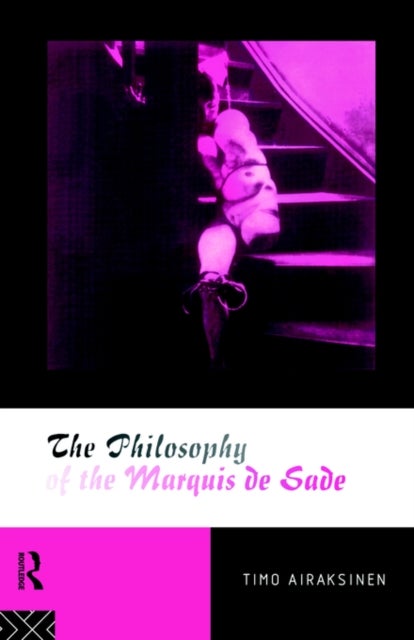
The Philosophy of the Marquis de Sade av Timo Airaksinen
579,-
The Marquis de Sade is famous for his forbidden novels like <EM>Justine, Juliette</EM>, and the <EM>120 Days of Sodom</EM>. Yet, despite Sade''s immense influence on philosophy and literature, his work remains relatively unknown. His novels are too long, repetitive, and violent. At last in <EM>The Philosophy of the Marquis de Sade</EM>, a distinguished philosopher provides a theoretical reading of Sade.<BR> Airaksinen examines Sade''s claim that in order to be happy and free we must do evil things. He discusses the motivations of the typical Sadean hero, who leads a life filled with perverted and extreme pleasures, such as stealing, murder, rape, and blasphemy. Secondary sources on Sade, such as Hobbes, Erasmusm, and Brillat-Savarin are analyzed, and modern studies are evaluated. <EM>The Philosophy of the Marquis de Sade</EM> greatly enhances our understanding of Sade and his philosophy of pain and perversion.








